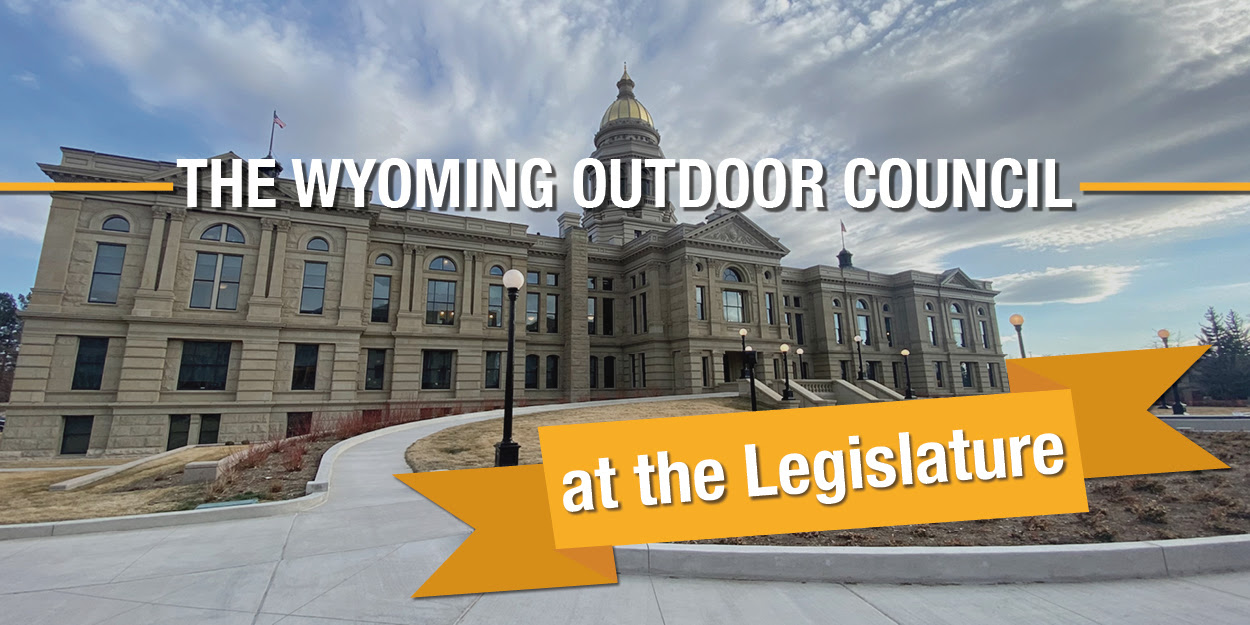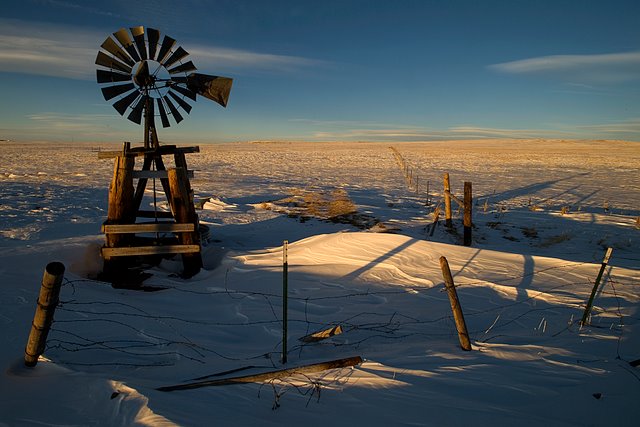The Wyoming Legislature gaveled in for the 2023 general session at noon Tuesday, Jan. 10, where lawmakers will confront a lot of new faces (including 29 new representatives and five new senators), a $913 million budget surplus, and perhaps as many as 700 individual bills. What comes next is a 40-day sprint for legislators to craft, debate, and pass legislation that can impact Wyoming’s communities, economy, environment, and quality of life for years or generations to come.
With so many people and issues competing for legislators’ attention — and so much on the line for Wyoming’s future — it’s crucial to remind them at every opportunity that conservation is a priority.
This means you, and Wyoming Outdoor Council members like you, will need to get involved. It makes a difference in Wyoming when legislators hear from you — their constituents and neighbors — and thanks to your dedication we’ve had significant successes in Cheyenne over the years. This year, we ask you to stay engaged and speak up for clean air, clean water, healthy wildlife, and public lands.
Here’s what you can expect from the Outdoor Council during the session:
A CLOSE EYE ON CONSERVATION BILLS
WOC will work to ensure development of state lands doesn’t come at the cost of Wyoming’s open spaces, wildlife, clean air and clean water, and to support responsible siting of renewable energy development. We’ll support adequate funding for state agencies that steward our natural resources and protect air and water quality. And we’ll be vigilant against bad ideas that tend to creep into legislation year after year — like state takeover of federal public lands and attacks on rooftop solar energy.
YOUR FULL-TIME VOICE IN CHEYENNE
The Wyoming Capitol is where the work gets done and, as usual, WOC will have a full time presence in Cheyenne this session. Your primary lobbyists will be Era Aranow of Lander (a seasoned legislative advocate who represented WOC at the 2022 session) and Keith Rittle of Laramie (a geologist and former WOC board member). Additionally, other WOC conservation advocates will rotate down to Cheyenne to weigh in on important issues where they have expertise.
WEEKLY UPDATES AND ACTION ALERTS
Things move quickly down in Cheyenne, so we’ll keep you up to speed with weekly email updates. We’ll also alert you when there are important opportunities to share your perspectives by contacting your legislators or giving a public testimony.
EDUCATIONAL (& FUN!) PROGRAMS
Last week, we hosted a virtual Wyoming Legislature 101 event along with Powder River Basin Resource Council to explain the legislative process, how to read a bill and navigate the legislative website, and how to share an effective message with lawmakers. You can watch a replay of the panel discussion on our YouTube channel. Coming up, we’ll be hosting two Beers & Bills events to talk about important bills, get your input, and share our insights from the Capitol. Mark your calendar for 7 p.m. Wednesday, Jan. 25 at Coal Creek Tap in Laramie, and 7 p.m. Thursday, Jan. 26 at Bella Fuoco in Cheyenne.
POST-SESSION REPORTS
Each year, after the dust finally settles, WOC publishes our Conservation Vote Report with analysis of conservation issues that were debated during the session, and a record of how your lawmakers voted on key conservation bills.
Many, many bills will be introduced in the early days of the session so be sure to sign up for WOC emails and watch your inbox for our regular updates and alerts. In the meantime, please feel free to email me anytime if you have questions.
And don’t forget, you can use the legislature’s website to read the full text of bills, find committee meeting schedules, sign up to testify online, or look up your legislators’ contact information: www.wyoleg.gov




